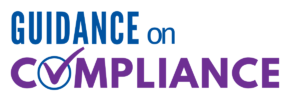The Centers for Medicare & Medicaid Services (CMS) recently released the Final Rule for the Physician Fee Schedule (PFS), or Medicare Part B Rule, which will take effect on January 1, 2025. This comprehensive blog series outlines significant changes impacting therapy professionals, including Physical Therapists (PTs), Occupational Therapists (OTs), and Speech-Language Pathologists (SLPs). If you missed Part 1, click here!
New Rules for Therapy Practice
Supervision of Assistants in Private Practice Settings
The significant change in the supervision requirements means that in private practice settings, assistant supervision will transition from “direct supervision” to “general supervision”.
Direct Supervision: In the past, a therapist had to be on-site and immediately available to supervise assistants while they provided treatment.
General Supervision: Under the new rule, the therapist can supervise assistants as long as they are immediately accessible (meaning they can be contacted quickly but don’t need to be physically in the same room).
Example:
A physical therapist working in a clinic can now have an assistant provide treatment while the therapist is in an adjacent room as long as they can be easily contacted.
This change brings several benefits for therapists in private practice settings.
Increased Flexibility: Therapists will have more freedom to manage their time, allowing them to supervise assistants while working on other tasks, treating different patients, or handling administrative duties.
Improved Efficiency: Private practice clinics can now supervise from a distance, streamlining care, especially during busy times, without sacrificing quality.
Telehealth Updates
Starting January 1, 2025, the rules for telehealth will return to their previous state before the Public Health Emergency (PHE). This means that therapists—PTs, OTs, SLPs, and their assistants— can no longer provide telehealth services to Medicare beneficiaries or bill Medicare for those services.
The temporary extension that allowed therapists to provide telehealth under Medicare will expire on December 31, 2024. After that date, therapists will be excluded from telehealth coverage under Medicare Law. The Medicare Law (the Social Security Act) only certain healthcare providers such as Physicians, Nurse Practitioners (NP), Physician Assistants (PA), Clinical Nurse Specialists (CNS), Certified Registered Nurse Anesthetists (CRNA), Clinical Social Workers (CSW) to name a few, can provide telehealth services to Medicare patients; however, therapists—PT, OTs, SLPs, and their assistants— are not included as approved providers under Medicare law for telehealth. Therefore, when the extension ends on December 31, 2024, therapists will no longer be able to bill Medicare for telehealth services, no matter where they are located (urban or rural). The CPT codes that therapists use for therapy services will still be on the “telehealth list” for other approved telehealth providers.
New Caregiver Training Codes
CMS is introducing new Current Procedural Terminology (CPT) codes for caregiver training starting in FY 2025. This change will allow therapists to bill for training sessions to teach caregivers how to assist patients with their recovery at home.
The new caregiver training codes are specifically designed to allow therapists to get reimbursed for training caregivers—whether it is a family member, spouse, or hired assistant—on how to properly help patients with their recovery outside of the clinic. In other words, if a caregiver needs to learn how to assist with physical exercises, mobility, or daily activities, therapists can now bill for the time spent teaching them. (https://public-inspection.federalregister.gov/2024-25382.pdf page 325)
Example:
A therapist is working with a patient who is recovering from knee surgery at home. The patient’s daughter, their primary caregiver, needs guidance on assisting with certain tasks—like helping the patient with balance exercises, supporting them while getting in and out of bed, or safely performing daily activities.
With the new rule, you can schedule a caregiver training session to teach the daughter how to help. This training could happen over the phone, through video calls, or in person, depending on what works best for you and the caregiver.
The therapist provides training to the daughter on how to Help the patient with balance exercises to improve stability, Assist with transferring the patient in and out of a chair or bed safely, and Monitor and encourage home exercises to ensure the patient stays on track with their recovery.
Remember, caregiver training sessions can be billed using the new CPT codes as long as the therapist provides direct guidance to the caregiver on how to assist the patient with their recovery at home. The training can be done remotely (via video or phone) or in person, and reimbursement will be available for your time and effort spent ensuring caregivers are properly trained.
The new CMS rule for Medicare Part B therapy services, effective in FY 2025, brings key changes for therapists. These changes will affect how services are reimbursed under Medicare. Therapy providers need to understand these updates and prepare accordingly to continue delivering quality care while maintaining financial stability.
LW Consulting, Inc. (LWCI) offers a comprehensive range of services that can assist your organization in maintaining compliance, identifying trends, providing education and training, or conducting documentation and coding audits. For more information, contact LWCI to connect with one of our experts!


